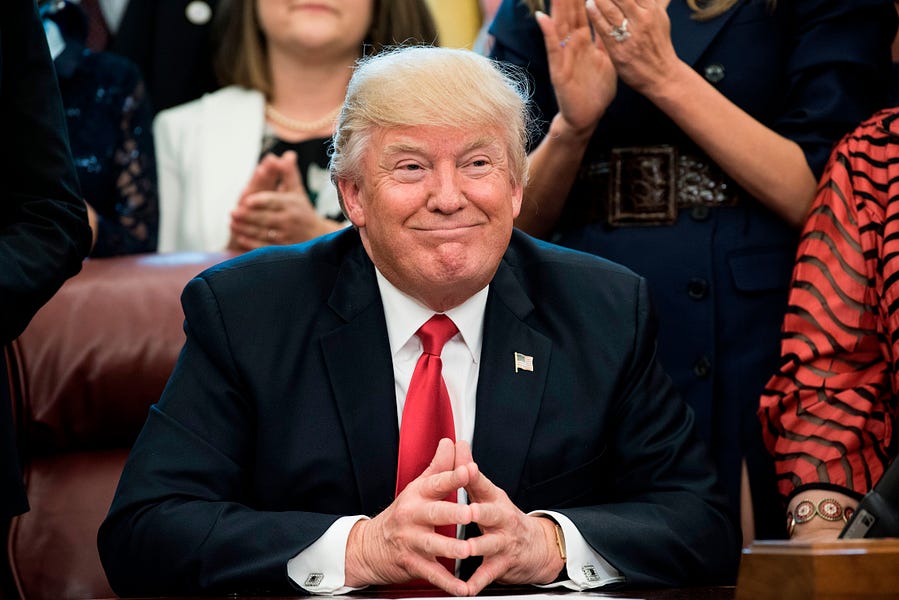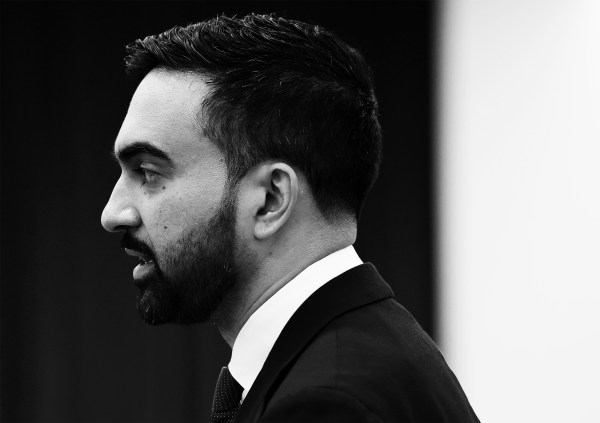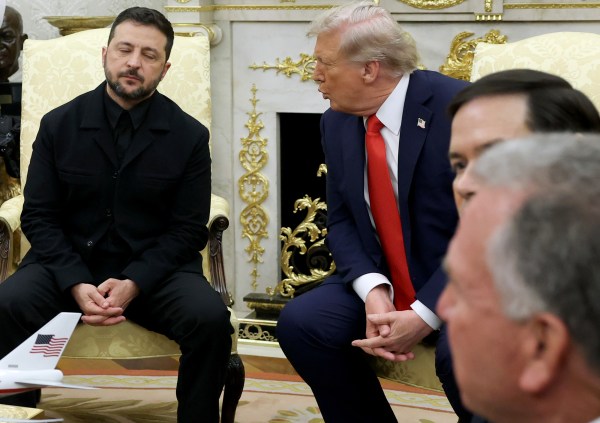One of the aphorisms of our populist era goes that Donald Trump is more of a symptom than a cause. Fair enough. I’ve certainly said it many times myself. But for it to be more than just a way to dodge nettlesome issues, we have to be clear about the diagnosis.
As Trump’s second impeachment trial gets underway, it’s crucial to know which causes and effects we mean. Since Trump re-emerged on the political scene a decade ago hawking Obama birtherism like a box of frozen steaks, he and his antic carnival of grift have been credited with and blamed for everything from “bringing peace and prosperity” to the world all the way down to dating woes.
I don’t pretend to know everything that caused the nation to be such ripe pickings for a hustler like Trump. We all know some of the causes: cultural starvation that created a yearning for rabid partisanship as a simulacrum, economic transformation, weak political parties, atomization of media, the ease of employing mob tactics in the digital age, and on and on. In fact, Trump has been a big and messy enough symptom that one can find his origins in almost any longstanding ill he or she wishes. Confirmation bias didn’t just help make Trump possible; it has confused the work of an honest, complete diagnosis.
This is the kind of algebraic thinking that makes it so hard to address serious problems in America. If one already knows the product of the equation is that their opponents are to blame, solving for X is just a matter of looking for a root cause that originates on the other side. Satisfied that it’s somebody else’s fault, the mind closes with a pleasing “snap.”
The truth about complicated matters such as these is seldom satisfying since no side or group can escape completely unscathed. Indeed, the prevalence of this motivated reasoning is in itself evidence of one of the leading causes of Trump’s acquisition of power and the enthusiastic support by millions for his abuses of it.
Exhibit A: Activists disrupt the administration of coronavirus vaccinations at Dodgers’ Stadium. One of the motivating factors cited by the so-called anti-vaxxers was the recent death of homerun king Hank Aaron at the age of 86—more than a decade beyond the life expectancy for an American male. Aaron died three weeks after he volunteered for a public inoculation to encourage other seniors to follow suit. Notorious crank Robert Kennedy Jr. said it was part of “a wave of suspicious deaths among [the] elderly.”
Exhibit B: The government of the District of Columbia, a perpetual motion machine for patronage, goes to court seeking an injunction against a union that represents Washington’s teachers. The aim was to prevent the American Federation of Teachers from striking to prevent schools from reopening for in-person learning. Government workers, especially teachers, are the political behemoth of local politics in our nation’s capital. For city leaders to bite the hand that feeds them means something is seriously out of phase. Here’s what: Despite all of the evidence presented by public health officials not only that schools can reopen safely but that opening them is essential, teachers’ unions are still opposed.
Exhibit C: Timothy Wilks, 20, is shot and killed outside of Nashville’s Urban Air Trampoline and Adventure Park. Police told reporters that Wilks was trying to create a viral video of himself staging a fake robbery prank for his YouTube channel. Apparently unaware of the hilarity of having a stranger run at you and your friends with butcher knives, one of Wilks’ intended foils drew a pistol and shot him dead.
The evidence comes from across the country. It transcends divisions of politics, economics, education, ethnicity and gender. You’ve got the nephew of a former president all the way down to a post-adolescent YouTube wannabe. What connects them—the same thing that threatens the health of the republic—is rank imbecility.
Foolishness is nothing new in America. This is the country of P.T. Barnum, medicine shows and pet rocks, after all. But our current concentration of imbeciles has surpassed any kind of safe level. How we became a nation of so many dupes and fools is a matter at least as complicated as the causes of Trump’s presidency. What stands out, and as the sad state of Washington’s schools suggests, is that we are suffering the consequences from generations of Americans who are both undereducated and miseducated. This many millions of nincompoops didn’t show up overnight. They have been stumbling out of our nation’s failing schools for decades.
If we are sincere about wanting to stop the next attack on the Capitol, then there could be no more urgent work than rescuing our students from the schools that fail them. It has not been so long since education was a top priority for both parties, but it can hardly compete with other issues that can more effectively be used as wedges and for which simplistic solutions can more easily be offered.
Humanitarian concern for students being dumped into and out of facilities that look like medium-security correctional institutions and act like daycares might not be enough to renew interest in the issue of education. But perhaps the consequences of plopping generations of wet clay into the hands of kooks, charlatans and demagogues will do the trick.
Chris Stirewalt is a contributing editor for The Dispatch.







Please note that we at The Dispatch hold ourselves, our work, and our commenters to a higher standard than other places on the internet. We welcome comments that foster genuine debate or discussion—including comments critical of us or our work—but responses that include ad hominem attacks on fellow Dispatch members or are intended to stoke fear and anger may be moderated.
With your membership, you only have the ability to comment on The Morning Dispatch articles. Consider upgrading to join the conversation everywhere.